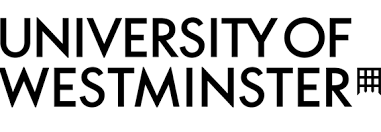What is the UK government doing to mitigate the financial impact of the coronavirus pandemic? How is the global community tackling poverty? What will Brexit mean for trade? How can companies embrace the opportunities of a decarbonised world? On this degree, you’ll explore these and more questions, crises and controversies as we uncover the far-reaching impact of economics on our world.
Economists tackle anything from interpreting and forecasting market trends or individual business performance by country, region or market, to advising businesses, governments and individuals on everyday and strategic decisions. These can encompass areas as diverse as international trade, profit maximisation, pricing decisions, forecasting revenues or consumer demand, to managing the national health service, tackling unemployment or inequality.
You’ll learn to analyse and predict the impact of economic, social and public policy issues on a variety of stakeholders, including consumers, investors, businesses, and how to source and provide the most appropriate insight to inform future decision-making and strategy.
As the role of data in informing decision-making grows, this degree expands your crucial skills in data gathering, handling and interpretation, quantitative analysis and forecasting. You will use industry-standard software, including SPSS, Excel,Eviews, Minitab and other statistical packages, to analyse data, build models and produce forecasts. You will also develop key soft skills such as communicating complex economic ideas to a non-expert, a logical approach to formulating and solving problems, presentation skills and teamwork.
As our economics degrees share a common first year, you’ll gain a solid foundation in economic concepts, principles, analysis, techniques and knowledge and, if you choose Introduction to Financial Economics as an option, you may be eligible to change to the Financial Economics course at the start of your second year. A variety of optional modules also enable you to tailor your studies to suit your interests, for example you can choose specialist economics modules in the digital economy, in international trade, money banking and finance. You can also choose option modules in other areas of the business school such as entrepreneurship, human resource management, marketing or accounting. Our degree also offers the flexibility of studying one language module per year.
Our vibrant economics community has strong links to employers, including the Government Economic Service. You’ll also have the opportunity to gain Bloomberg professional certification.
You will also be encouraged to participate in an array of extracurricular activities. Previous activity includes the IBM University Business Challenge (2020 Winners, Finalists 2018 and 2017, Semi-finalists 2016) and Microsoft University App Challenge (Winners 2019, Runners-up 2019). EDI Microsoft BAME University Business Challenge (3rd place 2021)

